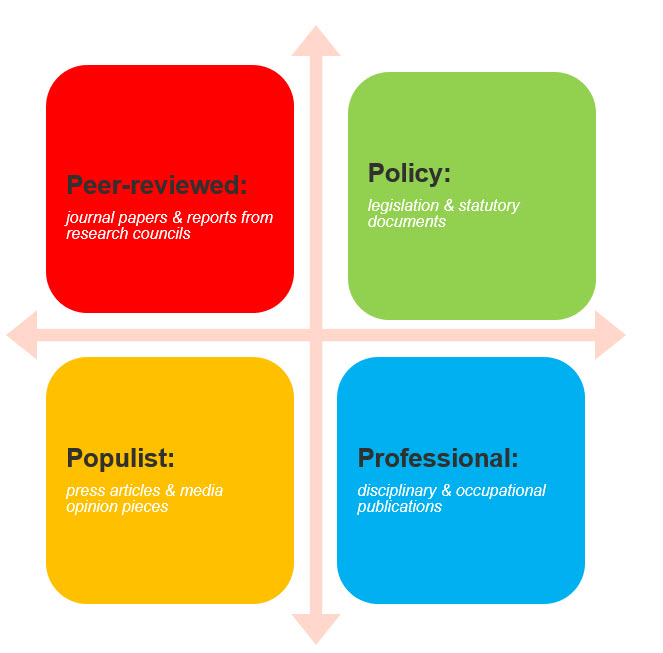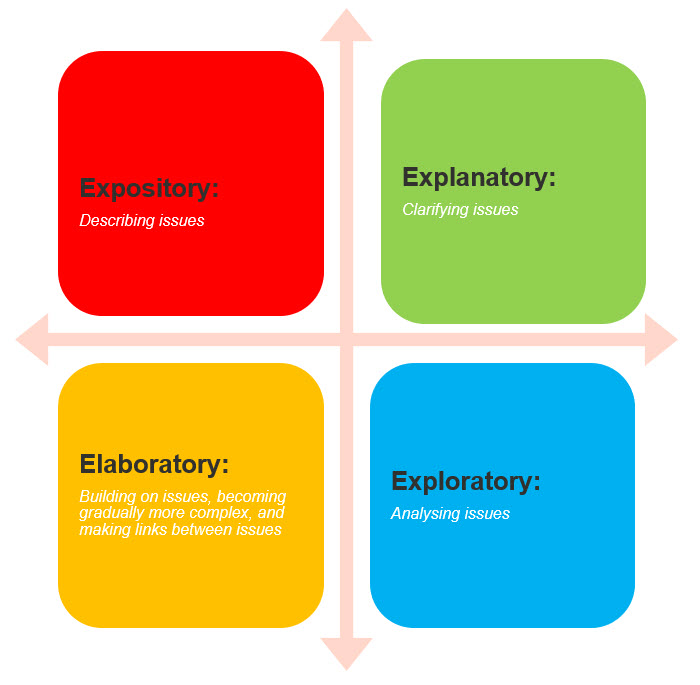Professor Caroline Walker-Gleaves
School of Education, Communication and Language Sciences
Faculty of Humanities and Social Sciences
Learning and Teaching Issue
There are numerous modules within postgraduate programmes that are termed ‘Preparations for Professional Practice’, and these are particularly common in vocational qualifications, such as Social Work, Midwifery, Pharmacy, and so on. Less common, but still relatively commonplace, are professional transitional modules that are a feature of many final year programmes in vocationally oriented degrees, such as Education, Law, Engineering and so on. Rather than equip students with the relevant skills and professional body requirements for practice, these modules aim to develop within students more generic skills in communication, complex decision making, and understanding current research.
As such, the assessments for many of these modules frequently mirror the practices and professions that students may enter once they graduate, comprising for example:
- Reflective journaling for ongoing professional learning;
- Producing digests of current research for updating;
- Presenting to professional audiences and communicating complex ideas;
- Developing diverse writing styles for working and technical papers.
The impetus for this action research stemmed from personal reflections on the way in which the students encountered these professional preparation issues within the Level 3 module that I teach within the School of Education, Communication & Language Sciences.
My module is entitled Responding to Special Educational Needs, and as a final year module, it has three explicit purposes: as a highly specialized module that acts as a capstone module for a degree in the discipline of Education; as an advanced module on this specific area that expects students to write with articulacy and advanced research insight about a complex subject area; and finally, as a transitional professional preparation module, that acts as a bridge between students’ writing academically about issues, to students communicating professionally about issues.
Although these aims are explicit in the module handbook, it was clear from the day that I first taught the module when I joined the university in 2016, that students were finding the module difficult: in seminars they spoke about the professional expectations but did not understand what ‘professional’ writing or expression ‘looked like’. They spoke of communicating complex ideas but did not understand what constituted ‘argument’ or ‘persuasion’ or ‘credibility’. In short, they knew that had to make several types of writing transitions within the module but did not know how to go about it. But significantly, the more we talked about it in class, the more they realized just how significant these ideas were, and just how critical they were in all modules. These experiences and observations convinced me that there was something that I could and should do in relation to my module.
However, there were several considerations that made the issue a feedback one rather than an adjunct learning one:
- The module was level 3, so leaving this till the summative assessment was too late.
- Conceptualizing this as a formative assessment issue was also too late, since the problem would not be able to be resolved in the period between formative and summative assessment.
- Making this an adjunct learning support issue undermined the critical importance of the issue – the transitional and transformative nature of the module meant that it was just that – it should be dealt with as a matter of gradual transformation of the students’ understanding, writing and communicating as the module progressed.
So, these notions informed my design of the module, which have developed over the last four years, and formed the basis of how I teach at level 3 in such modules.
I should add that as the module leader and only teacher on this module and having long term practical and research experience in teaching final year modules that are professionally oriented, I possessed the necessary experience of pedagogic practice and qualitative research to develop the module as a piece of action research, that I’ve been iterating and improving ever since.
My Pedagogic Response
Method
The first problem that I faced was to decide which issue had primacy within the module – the subject matter or the concepts that I was trying to address.
Considering that the module was a Level 3 module which introduced new ideas to students rather than building on a series of pre-requisites, I decided that both were equally important. This meant therefore that I had to make room for both disciplinary and academic development. I therefore decided that the lectures would concentrate on discipline but follow a process of building up a framework of professional learning with the subject studied in context, rather than subject development, as I had taught previously. So, the module, based on Responding to Special Educational Needs, took a much more explicit professional development arc, with lectures on for example:
- Understanding the need to define SEN in practice.
- Professional standards in SEN work in Schools & Colleges.
- Training to be a SENCO – history, education, policy.
- Practicing Inclusion – theory and practice.
- Being a teacher of children with PMLD – identity and beliefs.
Next, I scheduled the seminars so that not only were they longer than the lectures, but that they also utilized the topics that we had studied in class, but critically, for four two-week periods (each took a fortnight, and then we practiced the issue in a session), they addressed four main issues that I had deliberately built into the seminar programme, with the following issues, activities and outcomes (Table 1).
The following conditions became part of the module in addition:
- I used formative feedback with the module group extensively – aside from completing the weekly task in the seminars, each student had to post their work and their reflections on how their thinking and writing was changing through the module (on Blackboard and then Canvas).
- I gave feedback to individual students weekly via recorded thoughts attached to personal emails.
- I also did an overall reflection each week that I posted on Blackboard, bringing together various elements of the module – the concepts, the papers, the writing tasks and so on.
- Finally, each month in the class, (and virtually during the pandemic) I did a ‘flood the board’ activity, where I left the (virtual) or real room, the students got to write all over the board, filling it up with ideas, skills, insights they’d learned over the module so far.
- Finally! In the absence of any module feedback forms now in use within the school, I did my own forms and asked the students to complete them, asking about issues such as what they found difficult, what made them think, what they didn’t enjoy and why, what they wish they’d done more of and why, and not least, how they encountered the writing tasks and activities that we’d done.
Table 1
| Professional preparation issue | Associated writing developmental activity | Learning outcome |
| Critically analysing research and presenting findings | Producing an annotated bibliography of an issue, using 7 main papers | Critical analysis skill |
| Acknowledging and elaborating on diverse literature and stakeholders | Producing a literature review using the forms of literature schematic | Developing perspective-taking skill (Fig 1) |
| Using structural writing forms to present topics to wider professional audiences | Drawing upon seminar papers, using the structural template to break down and explain the development of ideas and concepts to a diverse audience | Developing structural writing skill (Fig 2) |
| Using elaborative writing structures to write about a topic within the lectures | Choosing a topic of student’s own interest and writing 1000 words using the elaborative template | Developing elaborative writing skill (Fig 3) |
Figure 1
Figure 2
Figure 3
Findings & Impact
The engagement and motivation and participation in the module was initially variable in the first two years that I ran the module in this structure.
Although the feedback showed that the majority students valued the nature of what I was trying to do, there was a mixed response to the way that I did it: some students seemed resentful that they had only learned how to write and analyze work in this way in the final year of the programme; others found the work too difficult and could not see links between the disciplinary nature of the module and the structural practices that I had introduced, and yet others found the work absolutely relevant to their next stage studies, yet wished that they had more time to practice these activities within other modules.
So, at the end of the second year, I changed the seminar papers to be much more explicitly aligned with the lectures, and changed the balance of lecture/seminar time, to make the lectures one hour and the seminar two hours, so that practice and question time would now be possible, and students would no longer feel as though they had to rush through concepts each week.
An important finding from all the ways in which students provided feedback, was that there was a small but persistent group of students each year who revealed that they did not understand the reasons for instructing them in professional skill development, including asking whether having such topics in the syllabus of any degree programme, was a waste of time and only useful if students were intending to go onto further study. There is thus an ongoing need for further communication and exploration of how we teach and present such concepts and notions to students, and how we as academics understand what we are trying to develop within our students as they approach the end stages of their degrees.
Reflections
My work and action research within this module remains ongoing, iterative and very much alive in terms of ongoing feedback from students, listening to them, and making constant changes and improvements. It has been a hugely positive opportunity to engage students within the undergraduate education programme, and to think about how we tackle the whole area of professional preparation and change within our degrees.
This work also appears timely, reflecting gathering momentum within many areas of professional and vocational education towards a cohesive identity, with national standards for occupations in many areas currently under review (Teaching, Social Work, and so on), thus providing a welcome opportunity for substantive curriculum redesign




Hi Caroline – Many thanks for reflecting on your ongoing development. I personally experienced your approach to adjusting your pedagogical practice based on feedback during our tutorials and supervision sessions. The reflective practice extends to using, designing and developing technology. Without reflection on the process, it is challenging to realise technology value. I will be using a similar approach to ‘flood the board’ activity in a ‘datathon’ with colleagues and hope to reflect on its effectiveness.